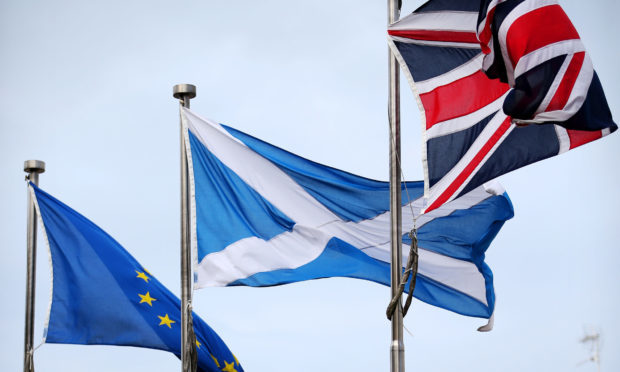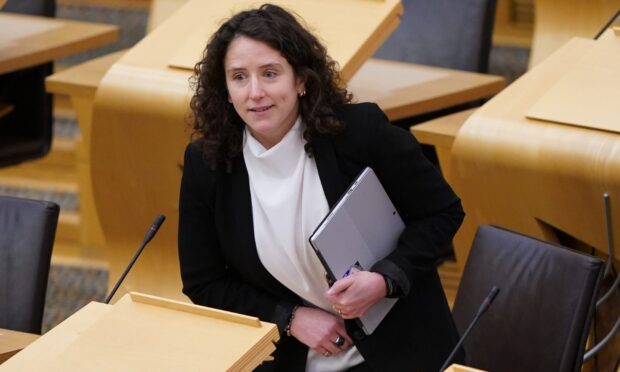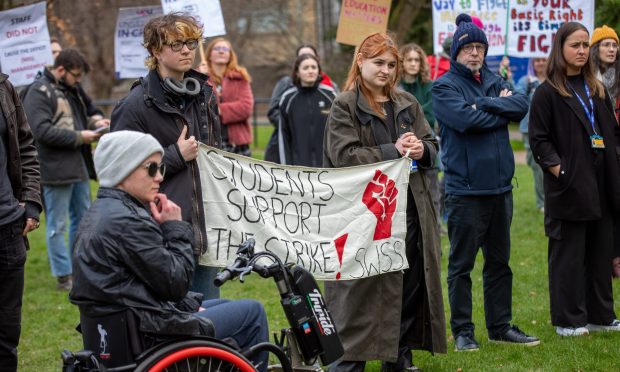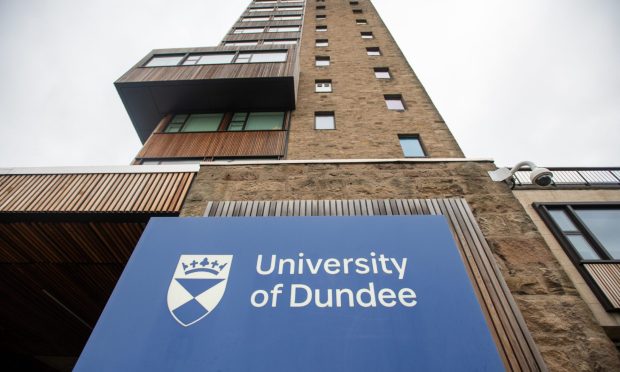The Scottish Government is seeking experts to investigate the impact of crashing out of the EU on of the country’s most lucrative industries.
Officials have commissioned a report on how a “no deal” Brexit will affect Scotch beef and other meat producers, as the likelihood of leaving the bloc without a trade agreement increases.
Farmers have already told The Courier that falling back on World Trade Organisation rules, which would slap tariffs on Scotland’s top exports, would push the meat industry “into the abyss”.
NFU Scotland also expressed deep fears that a failure for the EU-UK to agree on future trade would lead to “panic deals” with countries like the US and a lowering of food standards.
A Scottish Government contract has gone out to tender on the “cost implications for Scotland’s red meat sector when trading with the EU under WTO”.
The government said they are commissioning the research because there is not enough evidence on the “administrative costs and resource impacts of Scotland’s red meat sector” from trading with the continent on a “no deal” basis.
Food and drink is Scotland’s top export and was valued at nearly £6 billion last year. Meat exports alone racked up £99 million for the economy.
The industry has warned they face tariffs of 92% on exports of whole beef carcasses, which does not include extra costs associated with export certification and delays at ports.
NFU Scotland president Andrew McCornick said crashing out of the EU is a “worst case scenario and tantamount to the kind of chaotic cliff-edge change that we are desperately trying to avoid”.
Mr McCornick said time is running out for a deal that offers a “degree of certainty that businesses need”.
“With confidence increasingly fragile, we need clear positive signals about a post-Brexit future, not a ‘no deal’ that would see an industry being pushed into the abyss,” he added.
George Jamieson, a former dairy farmer who has worked for the Scottish Government, said new tariffs on imported cheeses from places like France could actually boost Scots products.
But Mr Jamieson, who now works for the NFU Scotland, said hard Brexit is a “really scary option” given the wider impact on the economy.
The Scottish Association of Meat Wholesalers (SAMW) welcomed the Scottish Government study.
They said the industry is facing an “uncertain future” because they “already do not have sufficient livestock available to meet demand”.
Raising the prospect of price increases, an SAMW spokesman said: “If the final deal includes any imposition of additional market access costs, it will not be possible for these to be met within the current margins being generated by the processing sector.
“Any additional costs will, of necessity, have to be passed back down the supply chain.”
Michael Russell, Scotland’s Brexit Secretary, said: “As a responsible government, we must prepare for all exit possibilities.
“However, we are constrained by the lack of clarity on the direction of negotiations with the EU and by uncertainty about the possible outcome of that.”
A Scottish Government spokesman added: “Given the significance of the EU market to the red meat sector, this research will identify the impact on administrative costs and resources of moving to trading under World Trade Organisation arrangements.
“This would guide policy development, our engagement with the industry and discussion of these issues with the UK Government.”










